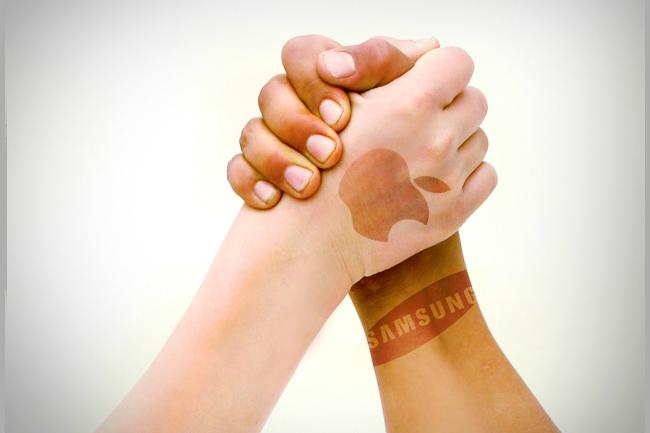
The latest patent-related legal battle between tech titans Apple and Samsung ended Thursday afternoon in a San Jose, California courtroom with the jury ordering the Korean electronics company to pay Apple damages of $290 million. Samsung has been accused of “slavishly copying” a number of software and design features relating to Apple devices such as the iPhone and iPad.
The trial, which lasted five days, was the result of a ruling made by Judge Lucy Koh at the end of another hearing last year in which a jury awarded Apple $1.05 billion after concluding that 26 Samsung products infringed six Apple patents. However, Koh said the jury had erroneously calculated $400 million of the awarded damages relating to 13 of the 26 Samsung products, and as a result called for this week’s trial.
During this latest hearing, Apple argued that Samsung’s infringements meant it had lost out on profits from sales of its own products to the tune of hundreds of millions of dollars. The Cupertino company had been hoping to win as much as $378 million, while Samsung had argued that $52 million was a fair amount. With Apple awarded $290 million, it’s not hard to see whose evidence the jury found most convincing.
Thursday’s decision means Samsung still has to pay about $890 million of the original $1.05 billion amount awarded last summer.
In a statement given after the verdict, the iPhone maker said, “For Apple, this case has always been about more than patents and money. It has been about innovation and the hard work that goes into inventing products that people love. While it’s impossible to put a price tag on those values, we are grateful to the jury for showing Samsung that copying has a cost.”
Samsung, understandably, said it was “disappointed” with the outcome. It won’t surprise you to learn that the company is widely expected to appeal Thursday’s decision.
Many of the legal disputes between Apple and Samsung have been continuing for so long that a good number of the products at the center of the cases are no longer even made by the companies, which is why the pair will be back in court in March to fight it out over patents related to current products.
There’s no end in sight.
[Source: IDG]


